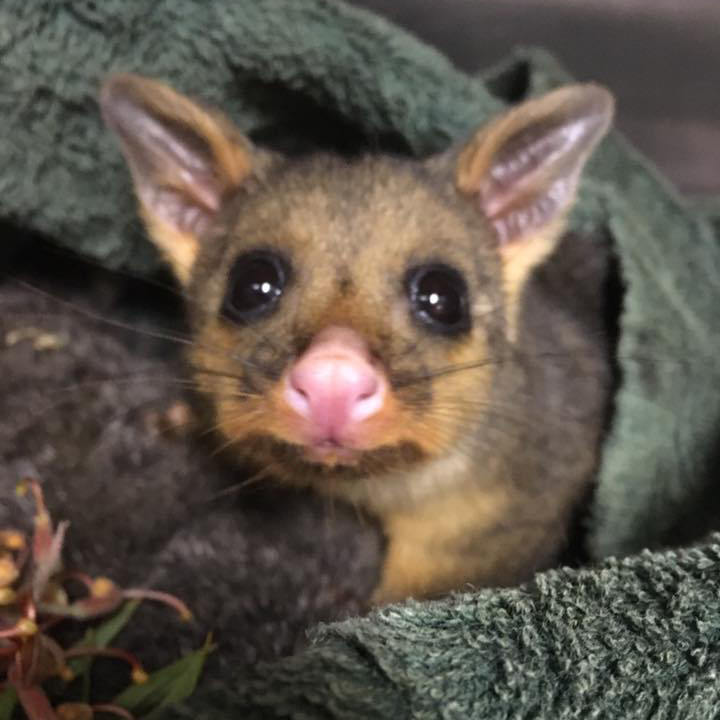Both Seaford and Carrum Downs Veterinary Hospitals accept native wildlife to be assessed before deciding whether the animal can be rehabilitated. It is against the law to keep any native wildlife. After assessment of the animal we then refer the patient to our wildlife carer to aid in the recovery process.
Baby possums – Baby possums are often in this seasonal change, have been found on the ground. Please quietly approach the possum, gentle wrap it with a warm cloth and call for help. Do not feed or give the animal water, the carer will attend to that.
Baby birds – Fledging day birds are again being seen on the ground – keep the cats and dogs away from them and leave them alone. Most birds learn to fly after they leave the safety of the nest, they need to attend to it.
Baby Owls – Fledging owls also in the seasonal change can be found on the ground too. It is OK to quietly approach it, cover it and placed into a quiet box for comfort. Keep in mind these birds are nocturnal, they must be put back where you found the owl so it’s parents are able to find it. It is best to try and find the closest tree branch the animal was found at to be kept away from cats and foxes. Note: Day birds can attack young owls and will kill them. If you are concerned about this situation and are afraid to touch the owl, place a washing basket over them to protect. Also keep your cat indoors at all times.
Snakes and lizards – Lizards do their own thing and are harmless, keep your dog away from them though. Keep well away from snakes and make sure your cat or dog are well away. Please call a snake catcher if you see one on your property and if it is a danger to you and your family.
Echidnas – Echidnas are often seen on warm days foraging for food in gardens and on roadsides. Leave them alone as they know where they are.
Penguins – seen on beaches – If you see a penguin on the beach please call for help immediately, a penguin on the beach is in trouble. Do not try to help it yourself you must call a wildlife carer.
Seals – If you see a seal on the beach, leave it alone, it is there for a reason. Seals actually come on shore for a number of reasons. If it looks injured call for help. Otherwise do not go within 5 metres of the animal. They can move very quickly and have a severe bite when provoked.
INJURED WILDLIFE
If you do find a injured animal or bird and if it is safe to do so, place a towel over the animal, quietly but quickly scoop the animal up into the towel and place animal into a warm but safe ventilated container. If in business hours please take them to your nearest vet.
Please do not under any circumstances handle a injured fruit bat, call immediate help if you see one.*Be very cautious when it comes to koalas, kangaroos and birds of prey as well as some sea birds when handling them*




